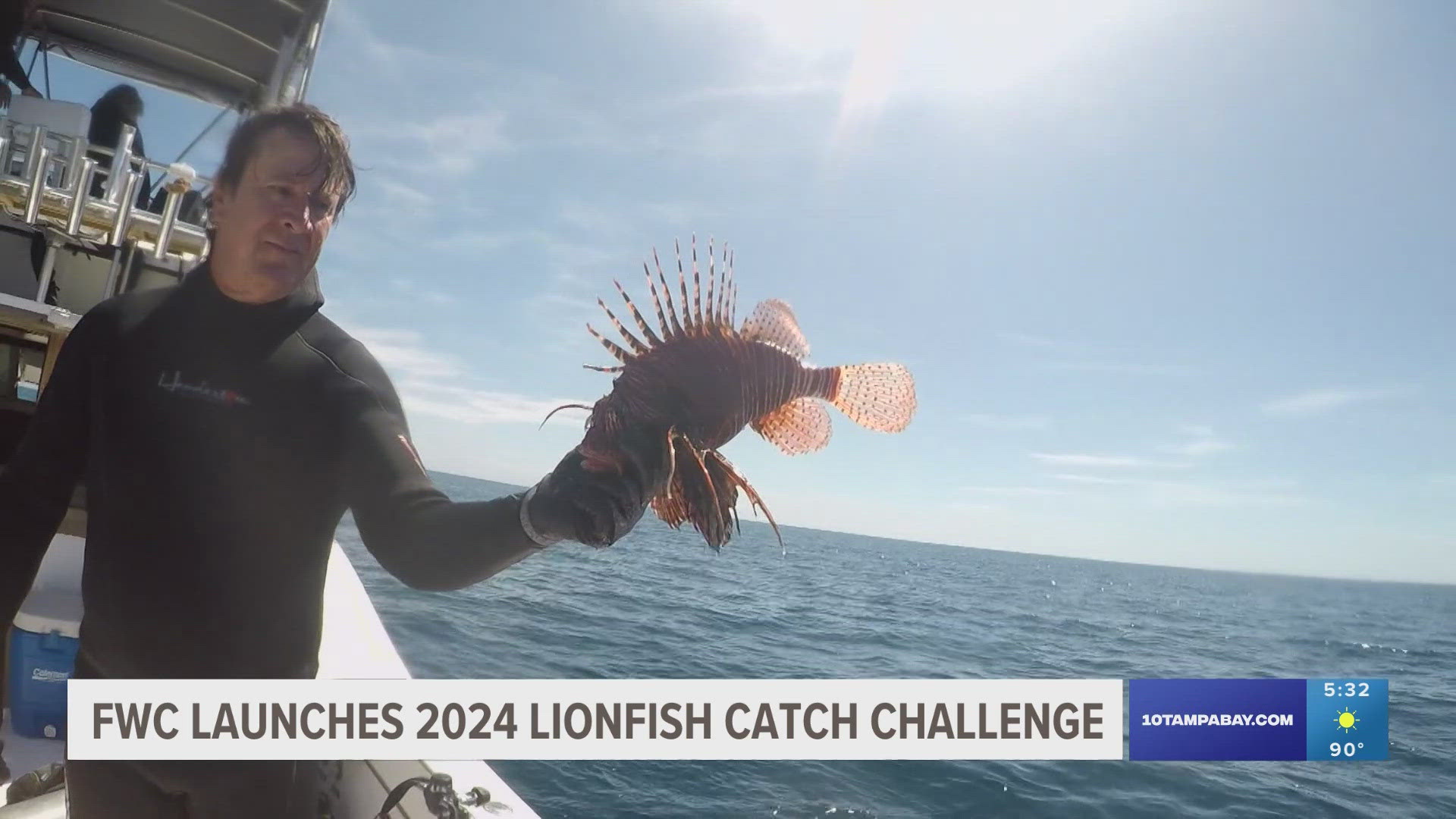FLORIDA, USA — The Florida Fish and Wildlife Commission (FWC) announced guidelines and prizes for this year's "Lionfish Challenge."
Each year, divers of all ages around the state participate in the challenge to remove and harvest as many lionfish as they can in just three months, FWC said in a news release.
More than 195,000 lionfish have been removed since the event was established in 2016, wildlife officials said.
Organizers said this year's challenge will take place from Friday to Sept. 2. Competitors will be split into two categories, recreational and commercial, with grand prizes awarded to each division's top competitor.
Prizes will be awarded as follows:
- Tier 1- Harvest 25 lionfish (recreational category) or 50 pounds of lionfish (commercial category)
- Tier 2- Harvest 75 lionfish (recreational category) or 100 pounds of lionfish (commercial category)
- Tier 3- Harvest 150 lionfish (recreational category) or 200 pounds of lionfish (commercial category)
- Tier 4- Harvest 300 lionfish (recreational category) or 400 pounds of lionfish (commercial category)
- Tier 5- Harvest 600 lionfish (recreational category) or 800 pounds of lionfish (commercial category)
What are the rules?
The FWC says commercial divers should sell their harvested lionfish to a licensed wholesale dealer and get a copy of their trip ticket verifying the commercial sale. After that, they must complete a Commercial Trip Ticket Submission here.
Recreational divers will have to remove the tails of their lionfish, leaving a bit of meat attached and place them in a plastic sandwich bag, according to the FWC website. Those bags should then be labeled with the harvester's name, phone number, date of harvest and number of tails.
Recreational participants will then bring their tails to a local checkpoint to verify the harvest.
For more information on how to participate, click here.
"While lionfish are a stunningly beautiful fish to look at, unfortunately, they are an invasive species," explained FWC Communications Director Forest Rothchild. "They are predatory. They have a tendency to kind of eat and consume the ecosystem, which then limits the natural wildlife that is supposed to be here in the marine life."
Rothchild said the Lionfish Challenge is a way to bring about balance and awareness.
"This is a way to let people know that you can actually help make a difference," he said.
The most effective way to catch lionfish is by diving for them. It's something Tarpon Springs fishing captain Scott Morris has done for years.
"Usually they're about 60, 70 miles out is where you go to actually harvest as many as you can. You get them with your lionfish rod, and you put them in your container. Or you can use a speargun," he said.
Morris said catching lionfish helps the industry as a whole.
"There's almost a guarantee that the reef is going to improve. And there's going to be more of the fish that they want on that reef next year. So really, the incentive is going to be so I can still fish here next year and my kids can fish here," Morris said.
While right now, lionfish isn't front and center at most fish markets, as long as you avoid its venomous spine, they can be great for eating.
"They're delicious. They're absolutely one of the best fish out there!" Miller said. "White, flaky. They taste delicious. More restaurants should have it on the menu and it would incentivize more people to go get them."

